




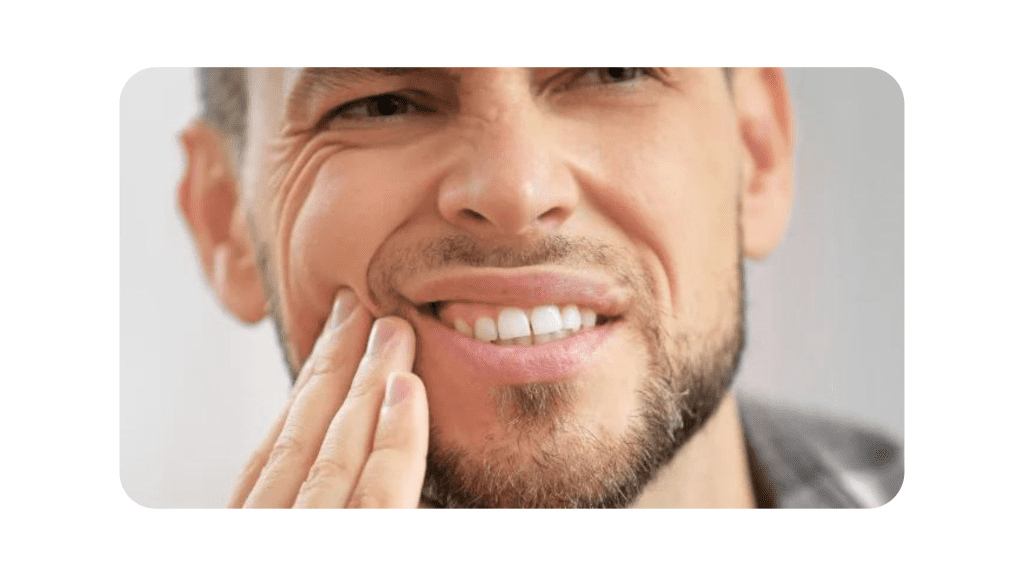
Disorders of the temporomandibular joint (TMJ): symptoms and treatment options
Does that the joint in your jaw hurts so much that you just don't feel like talking much right now?
In the United States, those who are coping with temporomandibular joint diseases make up about 12% of the population at any given moment. This phrase, which is a mouthful in and of itself, refers to the joint in your mouth that enables you to eat, drink, and speak. It's a blessing that the majority of issues associated with this joint are only transitory, but while you're in the thick of things, that may not be much of a consolation.
Have you ever attended a Halloween party and seen one of those skeletons that sing and dance? If so, you've previously witnessed the function of the temporomandibular joint, also known as the TMJ. Each of us has two of these joints, one on each side of the head. These joints are called the zygomatic joints. They can be found at the area where the mandible, also known as the jawbone, meets the temporal bones of the skull, which can be found all around and in front of the ears. This is where that absurdly long name originates from.
Because it is a synovial joint, the synovial fluid that surrounds it helps to cushion any movement that takes place. It is also a double joint, which indicates that there are two synovial chambers that are completely independent from one another.
The temporomandibular joint (TMJ) enables the jaw to move laterally, forward and backward, as well as hinge vertically.
What signs and symptoms are associated with TMJ disorders?
People who suffer from TMJ disorders (TMD) may exhibit a variety of symptoms, including the following:
What are the reasons for TMJ disorders?
TMJ issues are more than two times as likely to impact women of childbearing age than they are to affect men. It is believed that increased levels of the hormones estrogen and progesterone create ligament laxity (greater play in the joint), which might add to the discomfort associated with TMJ.
Of course, this is not the only thing that might bring on TMD or contribute to its development.
Rheumatoid arthritis is a form of arthritis that is an autoimmune illness. Rheumatoid arthritis can be the primary cause of your TMJ pain since it leads your body to attack its own joints. According to the findings of a study conducted on persons who suffer from rheumatoid arthritis, over 93% of them experience issues with their TMJ.
The temporomandibular joint (TMJ) is not immune to the degenerative effects of osteoarthritis, which can affect any joint in the body.
Psoriatic arthritis is a chronic inflammatory joint disorder that can potentially impact the temporomandibular joint (TMJ) and can develop in approximately thirty percent of those who have psoriasis.
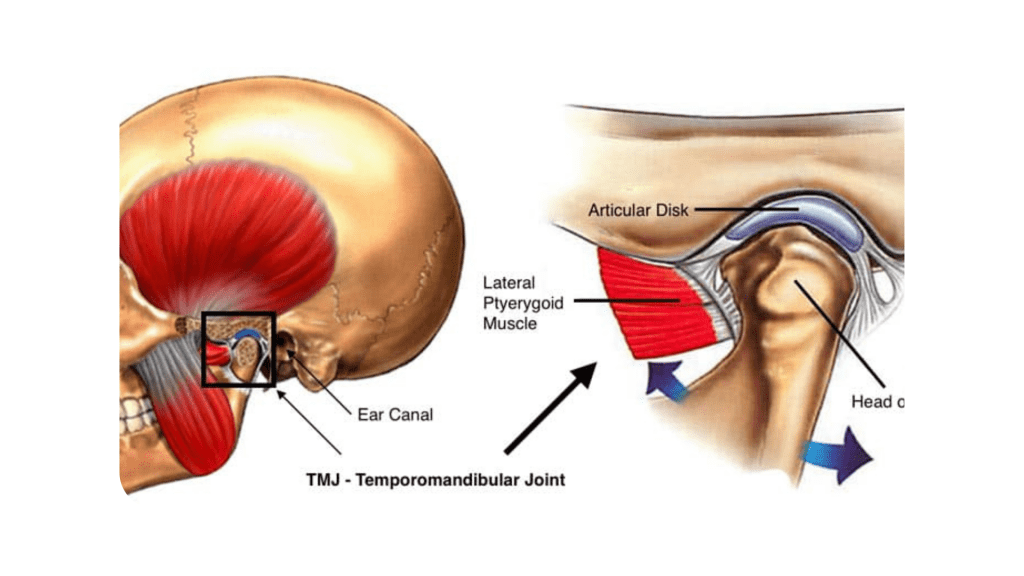
Dislocation or harm to the body
Have you recently been the victim of a hit to the jaw or have you had substantial dental work done? Too much strain on the joint can lead to difficulties, and this tension can be caused by trauma such as a blow to the area or prolonged straining.
Actions carried out repeatedly
Do you frequently pick at your fingernails or bite them? Do you chew gum on a regular basis? Do you clench your jaw or grind your teeth? Bruxism affects the jaws of some persons without their knowledge (nighttime tooth grinding). All of these things can cause your TMJ to get overworked and give you problems.
Jaw misalignment
TMD is frequently experienced by patients whose jaws are not aligned properly. The natural construction of the jaw is flawed, and as a result, it does not fit together as it should, which can result in a painful condition. Find a dentist who can assist in correcting these difficulties and relieving the discomfort.
Connective tissue disorders
Connective tissue disorders can cause the jaw to become too mobile or misaligned, both of which can be uncomfortable for the patient. TMJ pain can be caused by any one of these conditions.
Stress
Because anxiety and stress can have an effect on almost every organ and system of the body, we can't ignore the jaw in this discussion. Tense muscles in the face and neck, as well as a clenched jaw, can all contribute to jaw discomfort.
Medications
A number of different prescription drugs may also cause TMJ as a side effect. Oral contraceptives, antipsychotics, and antidepressants are all examples of these types of medications.
How are problems of the TMJ identified and treated?
The first thing you should do if you think you might have TMJ is to schedule an appointment with your primary care physician or dentist. Talk to your doctor about the symptoms you're experiencing, and don't forget to bring up any other health issues you could be dealing with, including arthritis.
Your jaw will be examined, and your range of motion will be observed, by your healthcare expert while you are being examined. Additionally, they will pay great attention to what you have to say and will feel the joints in your face when you open and close your mouth.
At this stage, if they have any reason to suspect that there is an issue, they will likely order testing so that they can take a more in-depth look. Radiographs taken at the dentist's office can be used to examine both the teeth and the bones. Your doctor may recommend getting a CT scan so that they may get more in-depth images of the bones. It is possible that an MRI will be required in order to examine the joint's soft tissue in greater detail.
TMJ disorders—do they ever go away?
Because the symptoms of TMJ can appear and disappear at any time, some people choose to ignore them when they are present and express gratitude when they are no longer an issue. TMJ can also be effectively treated using at-home therapies like exercises and relaxation techniques, as well as heating or cooling packs to apply to the affected area. You can also temporarily numb the discomfort and continue on with your day by taking over-the-counter pain medicines that aren't too strong.
There is some disagreement among medical professionals as to whether or not TMJ can resolve itself over time. For the vast majority of people, the answer is determined by the underlying reason for their discomfort.
On the other hand, nearly everyone will improve after receiving treatment. Since TMJ is typically quite responsive to a variety of treatment methods, there is really no justification for avoiding TMJ pain alleviation in any way, shape, or form.
Is it possible for a dentist to aid with TMJ?
If you suffer from pain in your jaw joint (TMJ) and have an appointment scheduled with your dentist soon, be sure to bring up the issue with your dentist. They can assist in the diagnosis of your condition and, if the root cause is of a dental nature, they may also be able to assist in the treatment of it.
They will likely recommend you to a medical specialist for expert medical assistance if they determine that the causes of your TMJ problems are related to a medical condition. After that, your doctor will analyze the results of the CT scan or MRI to decide which course of treatment is most appropriate for you.
Are diseases of the temporomandibular joint (TMJ) covered by medical or dental insurance?
Concerned about the cost of diagnosing and treating your TMJ disorder? Don't be afraid. The treatment of TMJ disorder is typically covered by insurance. The only concern that needs to be addressed is which types of insurance will pay for it. There are occasions when the question of whether or not your medical or dental insurance will cover it is debated.
Treatments for TMJ are often covered by medical insurance in the majority of instances. This is due to the fact that a joint is still considered to be a joint regardless of where it is situated inside the body.
When should I make an appointment to see a dentist about my TMJ?
Do not put off getting treatment for TMJ if you are suffering any of the symptoms associated with the condition. If you believe that the reason of your troubles is a dental condition rather than one of the other potential causes that we have discussed, then going to a dentist may be the most appropriate first step for you to take.
TMJ can be treated by dentists when the condition is brought on by a misalignment of the jaw or by habits such as clenching the jaw or grinding the teeth (bruxism). The misalignment of your teeth can be corrected by having braces placed on them, or your dentist can build an oral device, commonly known as a splint or a bite plate, that will prevent your upper teeth from grinding against your lower teeth. Both of these options are available.
Medication, including muscle relaxants and anti-inflammatory medication, is also used to treat TMJ, along with other treatments.
Are you interested seeing a dentist in Summerlin, NV?
Are you sick and tired of suffering from the symptoms of TMJ? We sincerely hope that this article has shown you that the therapies available for TMJ issues are nothing to be afraid of and can significantly enhance your quality of life.
CLICK HERE TO SCHEDULE YOUR APPOINTMENT!
GET TO KNOW YOUR BEST DENTIST IN SUMMERLIN
Dr. Marianne Cohan was voted The Best Dentist/ Dental Office and Best Cosmetic Dentist from The Las Vegas Review-Journal in 2020 and 2021. She received her Doctor of Dental Surgery (DDS) from the State University of New York at Buffalo in 1992.

With an emphasis on cosmetic dentistry, complete makeovers, and implant dentistry, Dr. Cohan is committed to continuing education and feels that we never stop learning. Dr. Cohan takes pride in using high-powered magnification to perform minimally invasive restorative dentistry. She uses all the latest technological advances including digital radiography, digital photography, computer simulations, and high-resolution pictures of your proposed treatment on 55-inch screens. She also utilizes CBCT (cone beam) and laser technology.
Dr. Cohan is always available to her patients and is available for any dental emergency.

Snoring and Sleep Apnea. The importance of healthy breathing and restful sleep is increasingly being recognized in medical research. While there is still a great deal more to understand, it is now generally known that many significant biological processes take place during healthy sleep.
Some examples of these processes include the following:
Our bodies can function normally without food for roughly one to two months, but only for about three to four days at a time without water. How long would we go without breathing if we didn't do it? Imagine now that you are having an episode of choking many times each hour, hundreds of times each night, for a number of years.
When did it become acceptable for us to suffocate while we are sleeping? Today, more than one billion people suffer from episodes in their sleep that are comparable to drowning, and 85 percent of them are ignorant that they have this illness.
It is NOT natural for someone to pop and click their jaw joints, experience pain in their TMJ, snore or wake up gasping for air, breathe through their lips, and grind or clench their teeth. These behaviors should never be observed. These are indications that your body is struggling to get the air it needs and is entering a fight-or-flight phase, which can have a negative impact on your general health.
Why is it imperative to get at least eight hours of sleep each night?
The importance of healthy breathing and restful sleep is increasingly being recognized in medical research. While there is still a great deal more to understand, it is now generally known that many significant biological processes take place during healthy sleep. Some examples of these processes include the following:
• Normalization of brain function: A restful night's sleep enables neurons to rearrange themselves. While you are sleeping, the glymphatic system in your brain, which is responsible for water clearance, removes waste from the central nervous system. It rids your brain of the harmful byproducts that have accumulated there over the course of the day. When you wake up, your brain will be in a good position to function properly thanks to this. The consolidation of recent short-term memories into more permanent long-term memories is another way that sleep helps the memory.
• Weight control: Sleep has an effect on your weight by modulating the hormones that cause hunger. Certain hormones, such as ghrelin, which stimulates an increased appetite, and leptin, which stimulates an increased feeling of fullness after eating, have their levels regulated while a person is asleep. Ghrelin production is increased whereas leptin production is decreased when sleep quality is poor. Because of this imbalance, you may feel more hungry, which may increase the likelihood that you will consume more calories and gain weight.
• Maintaining normal insulin function: There is evidence from some studies that sleep may help prevent insulin resistance. It is possible for cells to process glucose in a more effective manner if their health is maintained. During sleep, glucose is used by the brain less frequently, which may assist the body in better regulating overall blood glucose levels. Insulin is a vital hormone that facilitates the conversion of glucose, sometimes known as sugar, into a form that can be utilized by your cells as a source of energy.
The inability of the cells to respond appropriately to insulin is caused by insulin resistance. Insulin resistance is a risk factor for developing high blood glucose levels, which can ultimately result in type 2 diabetes. A sufficient amount of quality sleep may, according to some research, reduce insulin resistance.
• The immune system: While you sleep, your body produces cytokines. Cytokines are a unique type of protein that defends the body against infection and inflammation. A decent night's sleep is necessary for the production of various antibodies and immunological cells. These chemicals eliminate disease-causing microbes, which contributes to the body's resistance against illness. Your body creates cytokines, which are vital proteins that combat infection and inflammation, while you are sleeping.
Cytokines are produced during sleep. When you are sick or under a lot of stress, getting enough sleep is very crucial. At these periods, the body requires an increased amount of immune cells as well as proteins. Your immune system may become stronger and healthier if you get enough quality sleep, which will allow your body to better fight off infections.

• Vitality of the heart: It has also been connected to risk factors that have an influence on overall heart health to sleep that is either disrupted or of poor quality. These conditions include high blood pressure, excessive activity of the sympathetic nervous system, and increased levels of the stress hormone cortisone.
• Emotional well-being: A good night's sleep is essential to maintaining emotional well-being. Certain parts of the brain are responsible for actively controlling emotions as well as supporting good brain function and emotional steadiness while an individual is asleep.
• The capacity of each cell in your body to repair and maintain itself is referred to as cellular restoration. This happens during deep, restful sleep. Cells are able to repair themselves and regrow when we sleep. During a restful night of sleep, the body completes a number of critical activities.
• Energy conservation: The energy conservation theory explains how our bodies are able to save energy while we sleep by allowing our bodies to lower the amount of calories they need to function properly.
What consequences do we face when our sleep needs go unmet?
Lack of sleep can have a detrimental effect on the function of every single cell and organ system in the body.
The recommended amount of sleep for an adult is between seven and eight hours per night. Sleep patterns that are disrupted or poor can lead to exhaustion, which in turn can lead to poor decision-making and an increased risk of accidents.
In addition, it is becoming increasingly apparent that a lack of sleep can contribute to a number of chronic health problems, including mortality at an earlier age.
Warning signs of chronic sleep deprivation include:
It should come as no surprise that the most exciting developments in dentistry are related to airways, given how much these innovations can enhance one's quality of life. The new frontier in dentistry is the study of how our mouth, teeth, and airways are connected to the rest of our bodies.
According to numerous studies, a major contributor to sleep apnea is our contemporary way of life. A limited amount of time spent breastfeeding, eating a diet high in soft foods, and having tongue and lip ties are just some of the factors that can contribute to underdeveloped jaws and narrow palates, which in turn can have an effect on our airways as well as our patterns of breathing and sleeping causing sleep apnea.
Orthodontic procedures that involve the extraction of teeth in order to make room are another major source of issues with the airway and breathing. It is possible that they will straighten the teeth, but they will also diminish the arc of the jaw and, as a result, the room for the tongue muscles. This will push everything toward the back of the mouth, which will reduce the airway.
More than eighty percent of people in today's society have undergone orthodontic treatment to straighten crooked or crowded teeth, and the vast majority of adults have had their wisdom teeth removed because their jaws did not develop normally enough to accommodate them.
Getting older, putting on weight, and having allergies are additional factors.
It is important to be aware that there are three different types of sleep apnea: central, obstructive, and mixed (a combination of the two). The most frequent type of sleep apnea is called obstructive sleep apnea, and it occurs when the airway becomes restricted, blocked, or floppy. The condition known as central sleep apnea happens when there is no obstruction of the airway during sleep, yet the brain nevertheless fails to instruct the respiratory muscles to breathe regularly.
Obstructive sleep apnea therapies

The use of CPAP machines, surgery, or mandibular advancement appliances has traditionally been the treatment of choice for obstructive sleep apnea (OSA). However, these treatments only address the symptoms of the condition and do not address the underlying cause, which can actually make the condition worse over time.
Laser therapy is a terrific new alternative for many different conditions, as it is a non-invasive treatment that does not require any devices or anesthesia and produces effects almost immediately. It does this by stimulating the formation of collagen and decreasing the tissue on the back of the mouth and the tongue, which in turn reduces snoring and opens up the airway. It has a lifespan of approximately one year and can be reapply whenever it is required.
The good news is that we are now able to treat the underlying cause of OSA sleep apnea in both children and adults using innovative technologies and a multidisciplinary approach. This strategy includes chiropractors, myofunctional therapists, sleep doctors, and ENT (ear, nose, and throat) specialists. The symptoms of sleep apnea can be reduced or eliminated entirely if the craniofacial structure is slowly expanded while also being remodeled.
This is achieved by the use of a patented piece of equipment. The majority of patients report that they feel the effects of the treatment within the first few days or weeks, and it is non-invasive, practically undetectable, and painless. To make matters even better, once therapy is finished, obstructive sleep apnea treatment for many people is no longer necessary.
We are only now beginning to understand sleep apnea and how the way we breathe impacts our health and what we can do to enhance it. The recent COVID-19 outbreak has brought to light the importance of taking a holistic approach to dental care, which can ultimately result in a longer and better life.
Being healthy is more vital than it has ever been, and a capable ally in the pursuit of this goal is your dentist.
Do you suspect that you might be suffering from sleep apnea? Make an appointment with the best dentist near me at Summerlin Dental Solutions now to get treatment and a better night's sleep.
CLICK HERE TO SCHEDULE YOUR APPOINTMENT!
GET TO KNOW YOUR BEST DENTIST IN SUMMERLIN
Dr. Marianne Cohan was voted The Best Dentist/ Dental Office and Best Cosmetic Dentist from The Las Vegas Review-Journal in 2020 and 2021. She received her Doctor of Dental Surgery (DDS) from the State University of New York at Buffalo in 1992.

With an emphasis on cosmetic dentistry, complete makeovers, and implant dentistry, Dr. Cohan is committed to continuing education and feels that we never stop learning. Dr. Cohan takes pride in using high-powered magnification to perform minimally invasive restorative dentistry. She uses all the latest technological advances including digital radiography, digital photography, computer simulations, and high-resolution pictures of your proposed treatment on 55-inch screens. She also utilizes CBCT (cone beam) and laser technology.
Dr. Cohan is always available to her patients and is available for any dental emergency.

Can bruxism be caused by stress? In short, yes it can. Dr. Cohan in Summerlin, Nevada goes over how stress affects your smile.
Everybody has more "work" than is customary for them these days. Even those of us who consider ourselves to have relatively low-stress lives may go through periods of anxiety or melancholy due to our job surroundings, the schools our children attend, or other social effects of COVID-19. Even though we may believe that our relatively low-stress lifestyles have been a blessing, this may not always be the case.
It's likely that your body is trying to adapt to the changes that are occurring even though you don't "feel" anxious. Additionally, one of the most common unfavorable side effects of your body "feeling" anxious is clenching and grinding your teeth together. The tendency of grinding one's teeth, which can happen consciously or unintentionally, is known as "bruxism," a condition. Your body is merely reacting to the stress in the environment around you whether your TMJ tightens up when you are trying to concentrate, while you are driving in traffic, or when you are dealing with a tough customer.
I do have some terrible news for you, though. Grinding your teeth, which may also be a sign of a sleeping disorder, can have a bad impact on your smile, your TMJ, and possibly your health.
You can still be feeling additional effects in your daily life even if you aren't aware that stress is making you grind your teeth (bruxism).
TMD and teeth grinding have been connected to one another (TMJ).
Your TMJ may experience chronic strain if you grind your teeth, particularly if the problem goes untreated. The joints on either side of your mandible allow it to move up and down as well as to the side and in other directions. A full-blown case of TMJ dysfunction or other negative effects may arise if the cartilage in your TMJ or the muscles in and around it become strained or irritated.
When individuals experience a flare-up, it's not unusual for patients to experience joint pain, headaches, stiffness, and a decreased range of motion. It's probable that you'll notice it when it's least convenient for you, such right after you get up in the morning or right after you arrive home from work. Keep an eye on your body to see if you have any further TMJ symptoms, such as popping or clicking. If so, you might need to wear a bite guard or a splint that covers your teeth to "train" your TMJ to relax when your body is under stress.
The Impact of Bruxism on Dental Work and Enamel
One of the most significant effects of teeth grinding on your smile is the harm it causes to your enamel and dental work. Grinding your teeth can have a lot of adverse effects on your appearance. Even though enamel is tough and resilient—indeed, it's the material in your body that is most resilient—it is not unbreakable. Because of the pressure put on your teeth when you clench and grind them, your tooth enamel will begin to progressively chip away or wear off, leaving behind flat, pointed, or jagged surfaces. The teeth of people who grind their teeth frequently tend to look shorter and flatter throughout the width of their mouths.

But this is only one of the several affects that bruxism has on the way your smile looks. Regularly grinding your teeth could reduce the durability of your current restorations (such as dental fillings, crowns, bridges, dentures, etc.) Although these restorations are very sturdy, the patient's natural tooth structure is still stronger than them. Therefore, if you continue to put extra strain on them day after day while you are under a lot of stress, there is a greater likelihood that something will break.
It's possible that the filling in your tooth breaks in half, that a piece of the tooth around the filling breaks off, or that a layer of porcelain chips off the crown. When anything like that happens, the complete repair must be performed because a patch cannot conceal the damage. The restoration usually becomes more invasive to the tooth because it's possible that some of the tooth's structure was also removed. This worsens a situation that is already difficult.
There is a link between teeth grinding and sleep apnea
Maybe you've been doing it for so long under the impression that the constant stress in your life is to blame. Bruxism, or nighttime teeth grinding, is closely linked to sleep problems such obstructive sleep apnea. Even if your life is very stressful, this is still true (OSA). People who have obstructive sleep apnea (OSA) may wake up feeling exhausted, with a sore jaw, or with headaches because of the ongoing stress on their muscles.
Squeezing your jaws and teeth as tightly as you can is your body's natural response to not obtaining enough oxygen, which may seem paradoxical but is what actually occurs. Because OSA prevents you from actually waking up, it's likely that this cycle of airway obstruction and teeth grinding will go on all night if you have it.
In addition to these symptoms, sleep apnea is linked to depression, tiredness, weight gain, high blood pressure, and a wide range of other symptoms. If you snore or feel tired all the time, it is in your best interest to speak with a sleep physician about getting tested for obstructive sleep apnea or any other sleeping disorder. These days, you can "take home" sleep tests to complete in the comfort of your own bedroom. These studies are appearing more frequently.
Summerlin Dental Solutions will assess you for teeth clenching and grinding, sleep apnea, and TMJ issues as part of the comprehensive exams we provide. To lessen the chance of tooth wear, snoring, or any other detrimental effects linked to your bruxism habit, Dr. Marianne Cohan may advise you to use an oral device or a biting splint.
If you discover that your teeth are becoming increasingly worn down or if your jaw hurts when you wake up, call our Summerlin dentist right away.
CLICK HERE TO SCHEDULE YOUR APPOINTMENT!
GET TO KNOW YOUR BEST DENTIST IN SUMMERLIN
Dr. Marianne Cohan was voted The Best Dentist/ Dental Office and Best Cosmetic Dentist from The Las Vegas Review-Journal in 2020 and 2021. She received her Doctor of Dental Surgery (DDS) from the State University of New York at Buffalo in 1992.

With an emphasis on cosmetic dentistry, complete makeovers, and implant dentistry, Dr. Cohan is committed to continuing education and feels that we never stop learning. Dr. Cohan takes pride in using high-powered magnification to perform minimally invasive restorative dentistry. She uses all the latest technological advances including digital radiography, digital photography, computer simulations, and high-resolution pictures of your proposed treatment on 55-inch screens. She also utilizes CBCT (cone beam) and laser technology.
Dr. Cohan is always available to her patients and is available for any dental emergency.
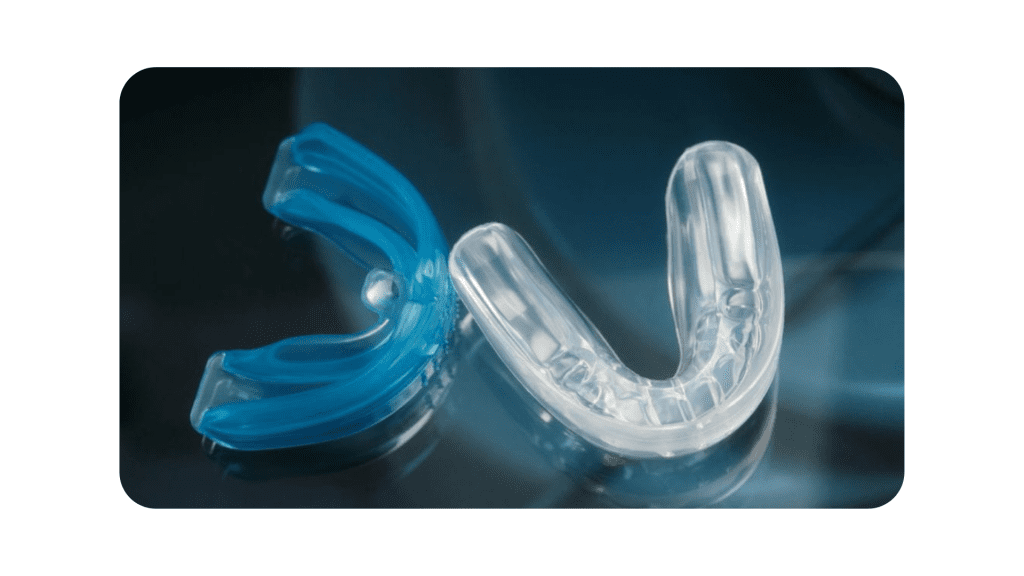
Have you ever questioned whether or not you really require a mouthguard to protect your teeth? If that's the case, then you should definitely read this article before making your next appointment with the dentist.
Do not be concerned in the least if you do not know what questions to ask. You are by no means the only one dealing with this issue, particularly if you are not familiar with mouthguards or night-guards.
Mouthguards are designed to protect your teeth and gums from injury, and contrary to popular belief, they are more effective in doing so than you might initially believe. While you are using the device, you can experience some initial and transient discomfort; nevertheless, the benefits to your oral health make the slight inconvenience more than worthwhile.
It's possible that you're confused about the function of a mouthguard and why certain individuals need to wear them. The following is a rundown of the fundamental information you need to have before selecting the mouthguard that will serve you best.
Your grin will end up being preserved in all of its glory along with its health and protection.
When you play sports, it is important to protect your teeth with a dental appliance called a mouthguard. If you clench and grind your teeth as you sleep, you could benefit from wearing one of these.
In either case, mouthguards perform admirably when they are customized to fit the unique contours of a person's teeth and mouth. There are some that come in regular sizes, while others offer personalized fits; in addition, they can be constructed from a variety of materials.
The distinction between dentures and mouthguards is one that is frequently confused by people. Although they share a similar appearance, their functions couldn't be more different.
Dentures are artificial teeth that can be worn in place of missing teeth, and mouthguards are designed to prevent tooth loss in those who wear them.
Mouthguards are normally made of a formable plastic that can be molded to fit the mouth of any individual, and they are also compact enough to be carried around and used as necessary. As a result, it is imperative that you do not misplace your mouthguard.
Who should consider wearing a mouthguard?
It is highly suggested that anybody who participates in a sport that involves physical contact use a mouthguard. In point of fact, you might not have a choice but to put one on.
No matter what kind of activity you participate in, your health and safety should always come first. This pertains to both the physical and dental health of the individual. An injury to the mouth or gum line can result in the loss of teeth and/or heavy bleeding, and if the damage is serious, oral surgery may be required as an emergency procedure.
In addition to protecting your teeth during contact sports, mouthguards can also be worn during activities such as riding a bike, skating, or other recreational activities that have the potential to cause an injury to the mouth.
Mouthguards, also known as nightguards, are an excellent solution for people who suffer from sleep apnea or grind their teeth while sleeping.
What are the many kinds of mouthguards available?
There are three primary categories of mouthguards, which are as follows:
Here is some information to help you better understand each type and determine which one could be the most suitable for you.
Stock Mouth Protectors.
These mouthguards are the least priced choice and may be found in a wide variety of sporting goods retailers. They are also easily accessible.
They are available in a variety of sizes, but the catch is that they cannot be customized in any way and only provide the most fundamental level of protection. They may be available in a variety of colors, but the fit is predetermined and cannot be altered in any way.
Boil-and-bite Guards
This particular kind of mouthguard may be adjusted to fit the contours of your mouth in a matter of minutes. It also comes in a variety of sizes that are determined by the state of your mouth and teeth, but this type may be modified to fit your specific needs.
The procedure for fitting is rather uncomplicated. To break in the new mouthguard, you submerge it in a pot of boiling water for a few minutes. The next step is to put the material in your mouth while it is still hot, and to press the plastic against your teeth while doing so.
As soon as the protector has returned to its normal temperature, it will keep its form, and you will then be able to begin practicing on the field.
Custom Fitted Mouthguard
It's possible that you've observed that the mouthguards that some elite sportsmen use have interesting shapes. These are made to order in order to provide the highest level of mouth protection possible.
However, the use of this kind of protection is not necessary limited to professionals alone. Additionally, they are excellent for those who have braces or if a dentist determines that you need mouth protection for whatever reason.
For instance, if you've recently undergone oral surgery, there will be a critical juncture in your recovery during which you'll be especially susceptible to sustaining further damage to your teeth. Those who are at a high risk of sustaining an injury to their mouth may benefit from wearing a custom-made mouth protector. Despite the fact that these protectors can be quite expensive and need to be fitted by a dentist, they provide enough protection.
How exactly do mouthguards accomplish their job?

A common misconception concerning mouthguards is the idea that they offer unrivaled defense against damage to the teeth and gums. However, despite their usefulness, mouthguards do not provide the same level of defense as other forms of protection.
Damage to the mouth caused by a severe blow to the face or head can be disastrous and may necessitate more than one surgical procedure. It is possible for mouthguards to lessen the likelihood of oral injury, but they cannot eliminate the possibility totally.
Even injuries that don't appear to be too serious can cause significant problems for the mouth. If you ignore the problem, even something as minor as a chipped tooth could result in an infection, a deepening of cavities, and additional harm. Damage to a tooth that results in an abscess is another urgent condition that can arise.
A mouthguard's secondary function is to maintain proper alignment and placement of all of the teeth within the mouth. Teeth have the potential to splinter and cut the gums or the roof of the mouth if a mouthguard is not used. You also run the risk of swallowing the broken parts of a tooth by unintentionally.
Mouth injuries pose the greatest threat, as they can result in permanent disfigurement if they are severe enough. In the event that you sustain a serious damage to your mouth, it has the potential to change your appearance for the rest of your life. In the worst-case situation, this type of oral trauma might potentially cause damage to the nerves.
If you engage in strenuous physical activity, it is strongly recommended that you use a mouthguard rather than risking injury to your teeth and gums by not using one.
If you wear a night guard, would it damage your teeth?
Another common misunderstanding is that wearing a sleep guard will make your teeth worse rather than better. Night-guards are a type of mouthguard that is worn at night, and their primary function is to protect teeth from being damaged while the wearer is asleep. It is significantly more likely that you will damage your teeth if you do not use a night guard when it is required.
When you grind your teeth as you sleep, the outer surfaces of your teeth become worn down, which can lead to damage over time. At some point in the future, the teeth might break, chip, or develop a cavity.
This misunderstanding originates from the fact that night guards can cause gradual shifts in the position of teeth over time. In point of fact, this is the reason why a lot of dentists utilize them. When we are younger and our mouths are still developing, this is an effective method for realigning our teeth.
If you use a night guard, you could notice that grooves are beginning to appear in your teeth. It's not a problem with the mouthguard's functionality. It is more likely that the guard does not fit properly, in which case you ought to have it checked out by your dentist.
What kind of maintenance does a mouthguard require?
The encouraging news is that mouthguards can be cleaned with relative ease.
You can rinse it out with regular mouthwash or with water that has been soapy, whichever you prefer. The use of cold water is required for this approach since hot water has the potential to change the contour of the guard over time.
It is in your best interest to keep your equipment away from areas that are subject to extreme heat or direct sunshine.
If you do need to transport your mouthguard, however, you should store it in a container that is both compact and robust so that you do not risk accidently harming it.
When not in use, a mouthguard made of acrylic should be stored in water to prevent it from drying out. In the event that this does not occur, the materials will be harmed, and the price of purchasing an acrylic mouthguard will have been for naught.
How long do mouthguards typically remain effective?
If you take proper care of your mouth guards, they should last you for a very long time. However, whenever you begin to see signs of wear and tear, it is highly recommended that you replace them with a new set.
You should search for regions in which the guard is no longer fitting as snugly over your teeth as it did in the past. When you first obtain a mouthguard, it may not feel as comfortable as it does later, once you have been accustomed to wearing it in your mouth for longer and longer lengths of time.
It is imperative that you never keep using a broken mouth protector since you run the risk of causing damage to your teeth. If you take the necessary precautions to maintain it, a quality mouth guard should last for several months, unless your dentist advises you otherwise.
How much do mouthguards cost when purchased from the dentist?
If you choose the usual sort of mouthguard, you won't often spend a lot of money on one. You can purchase quite a lot of these from retail outlets for around $20 each. From that point on, the cost of customizable protectors will increase.
It is possible to spend anywhere from $100 to several hundred dollars on a high-quality mouthguard purchased from a dentist. Everything is determined by the kind of material you require as well as the function of the guard.
There is an increase in cost associated with the molding process when a customized mouth guard is required.
Because of this, a lot of people decide to go with a high-quality boil-and-bite mouthguard instead.
Nevertheless, if the health benefits outweigh the cost of hiring an expensive guard, you might not have any other option but to do so.
The price of a mouth guard can also be estimated based on the brand name of the mouth guard.
Which dental mouthguard is the most effective?
The most effective dental mouthguard is one that is both comfortable and effective in its primary function, which is to safeguard your smile.
What kind of defense do you need? That will help you choose the best one for your circumstances. For example, the Smile Brilliant Night Guard is the most effective guard for usage during the nighttime hours.
Because there is such a wide variety of mouth guards and night guards available, it is in your best interest to speak with a dentist in your area. It's possible that a badly picked guard won't operate at all, or that it won't work as well.
Do not delay in getting a mouthguard if you believe that you require one. Make an appointment as soon as possible to safeguard and maintain the health of your smile.
CLICK HERE TO SCHEDULE YOUR APPOINTMENT!
GET TO KNOW YOUR BEST DENTIST IN SUMMERLIN
Dr. Marianne Cohan was voted The Best Dentist/ Dental Office and Best Cosmetic Dentist from The Las Vegas Review-Journal in 2020 and 2021. She received her Doctor of Dental Surgery (DDS) from the State University of New York at Buffalo in 1992.

With an emphasis on cosmetic dentistry, complete makeovers, and implant dentistry, Dr. Cohan is committed to continuing education and feels that we never stop learning. Dr. Cohan takes pride in using high-powered magnification to perform minimally invasive restorative dentistry. She uses all the latest technological advances including digital radiography, digital photography, computer simulations, and high-resolution pictures of your proposed treatment on 55-inch screens. She also utilizes CBCT (cone beam) and laser technology.
Dr. Cohan is always available to her patients and is available for any dental emergency.
WHAT MAKES ME GRIND MY TEETH?
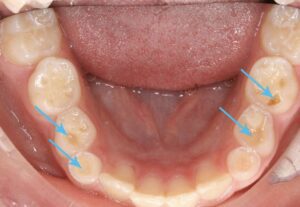
THESE ARE QUESTIONS THAT WE ARE ASKED:
HOW TO STOP GRINDING TEETH?
HOW TO STOP GRINDING TEETH IN SLEEP NATURALLY?
HOW TO STOP TEETH GRINDING?
WHY DO I GRIND MY TEETH AT NIGHT?
WHY DO PEOPLE GRIND THEIR TEETH?
WHY ARE MY TEETH CRACKING?
The discomfort that teeth grinding, and jaw clenching may cause can be distressing and have a substantial impact on your everyday life if left untreated. Dentists at Summerlin Dental Solutions have noted an increase in the number of patients clenching and grinding their teeth since the COVID-19 pandemic began. In addition to discomfort in the mouth and gums, jaw joints and muscles can be affected by teeth clenching and/or grinding (sometimes referred to as bruxing). The discomfort it produces can be excruciating, and it can have a considerable impact on your everyday activities.
Are you clenching your jaw at this very moment?
Our top and bottom teeth are only intended to come together when we require them to, such as when biting and chewing food. Our teeth may touch each other just for a short period of time throughout the course of the day, which is normal for us.

As you read this, consider how your teeth and jaws have been positioned unconsciously throughout your life. You should be calm when reading, and your teeth should be apart if you are not eating or chewing while doing so. This is true regardless of whether your lips and mouth are closed.
A dental examination at your Summerlin Dental office can assist in identifying the indicators of teeth grinding and jaw clenching.
It is possible that we will wear down our teeth over time if we grind or clench more than nature intended, and that our jaw muscles will grow tired and stiff as a result.
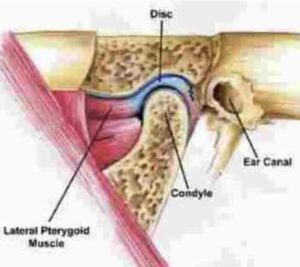
The jaw joints (also known as the temporomandibular joints or TMJ) that connect the lower jaw to the skull are equipped with a disc that aids in the regulation of the way the jaw joints move and rotate.
Discs can become deformed or displaced, which can result in clicking, decreased function, and discomfort.
One of the most important contributing variables is STRESS.
When we see patients who complain of pain in their jaw joints and surrounding muscles, or who show evidence of grinding or wear on their teeth, we will ask the patient whether they are under any stress at the time.
Many people respond with, "No, I'm not stressed at all!" But when we sit and speak about what's going on in their lives, the sources of stress soon become clear.
Starting a new job, dealing with issues at home or with family, or adjusting to a life transition are all frequent events that might cause us to become more stressed than we are aware of. When we're going through a difficult period, it's not always simple to recognize it.
What can we do to make a difference?
The first step is being aware that you are grinding and clenching your teeth and transforming what is frequently a subconscious behavior into something we can control and stop doing.
We at Summerlin Dental Solutions are trained to examine the health and condition of the jaw joints as well as the muscles that assist you in chewing food.
CLICK HERE TO SCHEDULE AN APPOINTMENT
In some cases, a dental examination may be necessary to detect evidence of teeth grinding and jaw clenching, which can manifest as broken teeth and fillings, worn crowns, or cusps (the term used to describe the raised edge of a tooth), and sensitive jaw muscles. Additionally, sore muscles along the sides of the head and neck are rather prevalent.

When we're going through a difficult or stressful moment, it's not always simple to recognize the signs.
It is possible that stress management and physical therapy will be significant components of a multi-disciplinary approach to patient treatment. If you grind your teeth at night (ask your spouse), you may wake up with aching teeth, jaw joints, or muscles in your head and neck. Consult with your Summerlin Dental office to determine whether a mouth guard for grinding teeth (also known as a bite elevating device or "nightguard") is a good option for your particular situation. These help to keep your teeth and jaws safe from grinding teeth in sleep.
Chewing gum for lengthy periods of time should be avoided by people who suffer from painful jaws as a result of clenching and grinding their teeth. While chewing sugar-free gum has been related to a lower risk of dental decay, it has been shown to exacerbate jaw discomfort in people who grind their teeth.
Identifying the root cause and treating the symptoms
At the end of the day, patients must also address the stresses that may be the underlying cause of their illness or condition. For many people, teeth grinding is a cyclical behavior that lessens or vanishes when the cause of their stress is dealt with or eliminated completely. Others, on the other hand, might find it more difficult.
When you need dental care, the guidance and attention of your Summerlin Dental office can assist you in getting the treatment you require.

GET TO KNOW YOUR DENTIST
Dr. Marianne Cohan was voted The Best Dentist/ Dental Office and Best Cosmetic Dentist from The Las Vegas Review-Journal in 2020 and 2021. She received her Doctor of Dental Surgery (DDS) from the State University of New York at Buffalo in 1992.
With an emphasis on cosmetic dentistry, complete makeovers, and implant dentistry, Dr. Cohan is committed to continuing education and feels that we never stop learning. Dr. Cohan takes pride in using high-powered magnification to perform minimally invasive restorative dentistry. She uses all the latest technological advances including digital radiography, digital photography, computer simulations, and high-resolution pictures of your proposed treatment on 55-inch screens. She also utilizes CBCT (cone beam) and laser technology.
Dr. Cohan is always available to her patients and is available for any dental emergency.